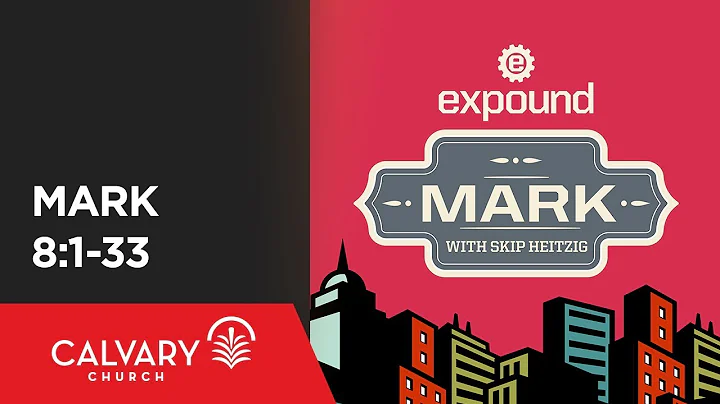Unlocking the Secrets to Healthy Relaxed Hair: Moisture vs. Protein
Table of Contents
- Understanding the Importance of Balance
- How to Identify Moisture-based Products
- Key Ingredients for Moisture-based Products
- Examples of Moisture-based Products
- Why Relaxed Hair Needs Moisture
- Recognizing the Signs of Moisture Deficiency
- Exploring Protein-based Products
- Key Ingredients for Protein-based Products
- Examples of Protein-based Products
- The Role of Protein in Relaxed Hair
- Recognizing the Signs of Protein Deficiency
- Finding the Right Balance for Your Hair
Understanding the Importance of Balance
In the world of hair care, achieving the perfect balance between moisture and protein is crucial for maintaining healthy, strong hair. Many individuals on their relaxed hair journey often struggle with breakage and wonder why their hair isn't responding to the countless products they've tried. The answer lies in understanding the delicate balance between moisture and protein in hair care products.
How to Identify Moisture-based Products
To effectively address the needs of your relaxed hair, it's essential to understand the difference between moisture-based and protein-based products. In order to do so, you must become proficient at reading and deciphering product ingredient labels. This skill will serve as the foundation of your hair care journey and significantly impact your product selection.
Key Ingredients for Moisture-based Products
When looking for moisture-based products, certain key ingredients can help guide your selection process. Water is the ultimate hydrator and should be the first ingredient on your list. Other ingredients such as fatty alcohols, aloe vera juice, glycerin, and various oils like coconut oil, avocado oil, and olive oil, are excellent indicators of moisture-based products.
Examples of Moisture-based Products
To demonstrate the practical application of these concepts, let's examine several examples of moisture-based products. Camille Rose Algae Renu Deep Conditioning Mask, Olive Oil Replenishing Conditioner by ORS, Cream of Nature Moisture Recovery Leave-in Curl Milk, and So Much Moisture by As I Am are all prime examples of moisture-based products that prioritize hydration, softness, and manageability.
Why Relaxed Hair Needs Moisture
Relaxed hair undergoes a chemical process that alters the protein structure and compromises the hair's natural moisture levels. As a result, it's crucial to replenish this moisture regularly and restore hydration through deep conditioning, moisturizers, and leave-in conditioners. Adequate moisture ensures optimal elasticity and prevents dryness, brittleness, and breakage.
Recognizing the Signs of Moisture Deficiency
Understanding when your hair needs more moisture is essential for maintaining its health and vitality. Dryness, tangling, roughness, and brittleness are clear indicators of moisture deficiency. If your hair easily snaps off or lacks the ability to retain moisture, it's time to incorporate more hydrating and conditioning products into your regimen.
Exploring Protein-based Products
While moisture is vital, protein also plays a crucial role in maintaining the strength and integrity of relaxed hair. Protein-based products are designed to fortify the hair, repair damage, and reduce breakage by filling gaps in the cuticle. Finding the right balance between moisture and protein is key to achieving optimal hair health.
Key Ingredients for Protein-based Products
When seeking protein-based products, it's important to identify specific key ingredients on product labels. Proteins such as keratin, collagen, silk, and various amino acids are essential for strengthening the hair. Look for words like "renews inner strength," "repairs damaged hair," or "ideal for chemically treated hair" to identify protein-based products.
Examples of Protein-based Products
To better understand how protein-based products work, let's analyze a few examples. ApHogee Two-Step Protein Treatment, ORS Hair Mayo, and Jamaican Black Castor Oil Strengthen and Restore Treatment Mask all contain ingredients like hydrolyzed vegetable protein, hydrolyzed keratin, and collagen. These ingredients rebuild the cuticle layer and repair damage, making them ideal options for hair in need of protein.
The Role of Protein in Relaxed Hair
Relaxed hair undergoes chemical processes that weaken the protein structures within the hair shaft. Therefore, incorporating protein-based products into your hair care routine is crucial for maintaining the strength and resilience of your hair. Protein helps slow water loss, increases hydration, and reduces breakage, ensuring your hair remains healthy and strong.
Recognizing the Signs of Protein Deficiency
Determining whether your hair needs protein is just as important as recognizing moisture deficiencies. Weakness, limpness, mushiness, and a lack of curl retention are common signs of protein deficiency. If your hair feels dry and experiences significant breakage, it may benefit from the addition of protein-based products to rebuild the cuticle layer and restore its strength.
Finding the Right Balance for Your Hair
Achieving the perfect balance between moisture and protein is a continuous process that requires attentiveness to your hair's specific needs. It's crucial to listen to your hair, monitor its response to different products, and adjust your regimen accordingly. By finding the right balance, you can nurture your hair back to health and maintain its vitality.
Highlights
- Properly balancing moisture and protein is essential for maintaining healthy, strong hair.
- Understanding product ingredient labels is key to selecting the right products for your hair.
- Moisture-based products prioritize hydration, softness, and manageability.
- Relaxed hair requires regular moisture replenishment due to chemical treatments.
- Protein-based products strengthen the hair and reduce breakage by filling gaps in the cuticle.
- Recognizing signs of moisture and protein deficiencies is crucial for addressing your hair's specific needs.
- Achieving the right balance between moisture and protein is an ongoing process.
Frequently Asked Questions (FAQ)
Q: How often should I incorporate protein-based products into my hair care routine?
A: The frequency of protein treatments depends on your hair's individual needs. If your hair shows signs of protein deficiency, such as weakness and excessive breakage, it's advisable to use protein-based products once every two to four weeks. However, it's essential to monitor your hair's response and adjust the frequency accordingly.
Q: Can I use a moisture-based deep conditioner if my hair is in need of protein?
A: While moisture-based deep conditioners offer hydrating benefits, they might not effectively address protein deficiencies in the hair. If your hair is exhibiting signs of protein deficiency, dedicated protein-based products should be incorporated into your routine to rebuild the cuticle layer and restore strength.
Q: Is it possible to over-moisturize or over-proteinize the hair?
A: Yes, it is possible to go overboard with either moisture or protein. Over-moisturizing the hair can cause excessive softness, leading to limpness and a lack of elasticity. On the other hand, excessive protein treatments can cause the hair to become dry, brittle, and prone to breakage. Finding the right balance is crucial for maintaining optimal hair health.
Q: Can I combine moisture-based and protein-based products in one treatment?
A: Yes, it's possible to combine moisture-based and protein-based products in a single treatment. Some deep conditioners offer a balance of both moisture and protein, making them suitable for addressing the needs of relaxed hair. However, it's important to pay attention to your hair's response and adjust the frequency and combination of products as needed.







